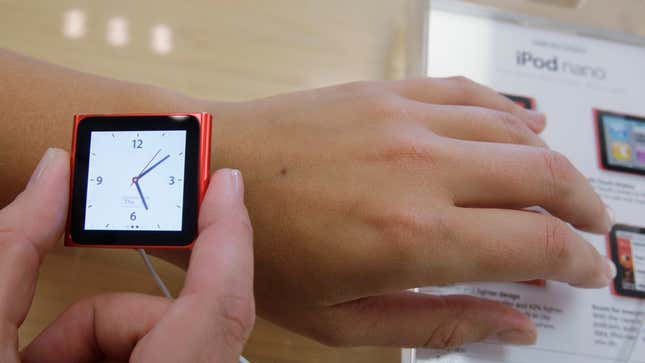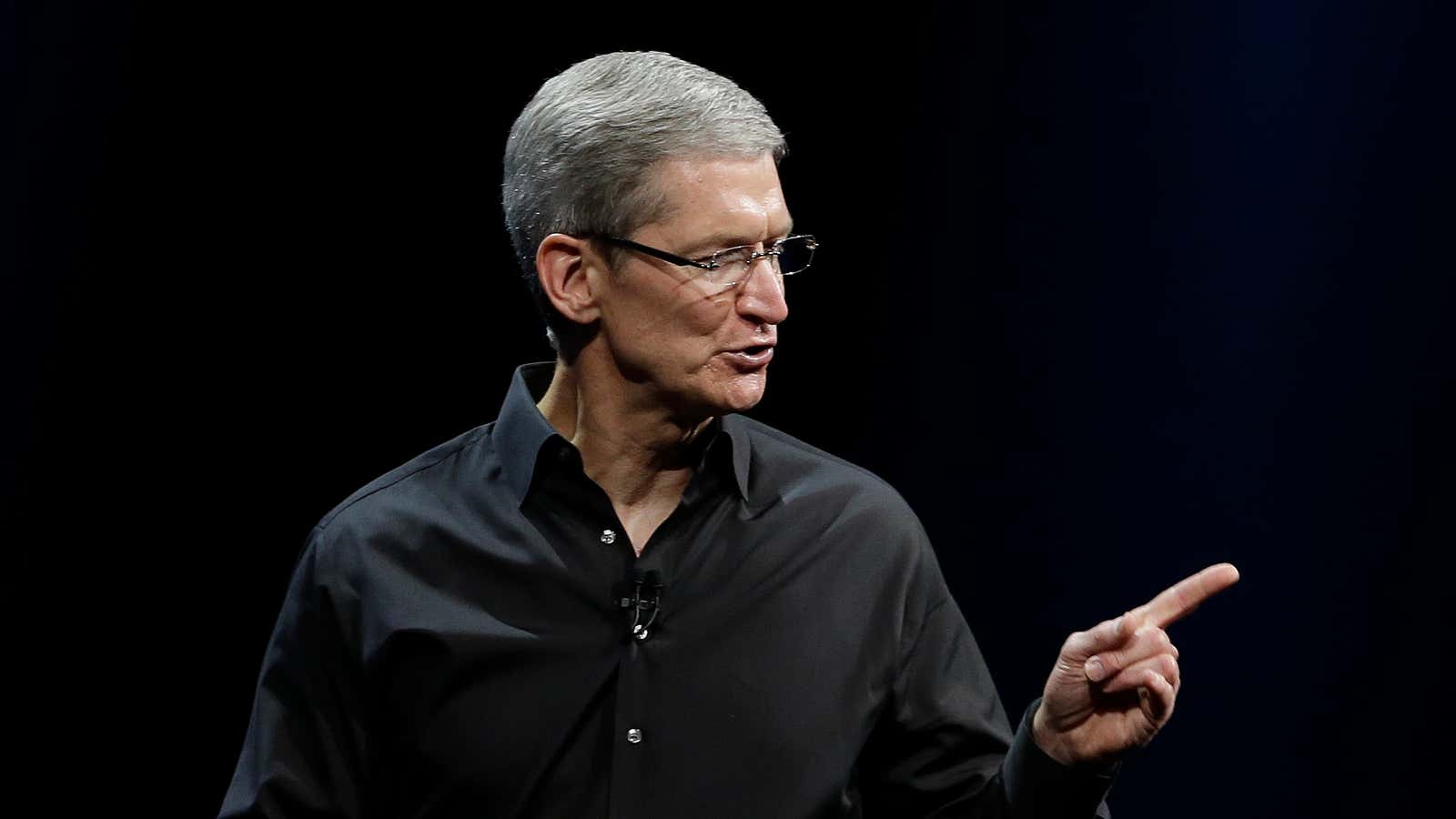2013 was a very Apple-y year, in that incremental improvements were pretty much all Apple rolled out. This kind of refinement and polish is one of the things the company does best. It’s easy to forget, for example, that Steve Jobs once unveiled a version of the Mac OS in which the only major difference was that most of its underlying code had been re-written in order to be faster and take advantage of new hardware.
2014 looks to be different. As CEO Tim Cook has been hinting, Apple will be releasing products unlike those that came before. Rumors abound that it will unveil a larger, 12.9-inch iPad for education that may actually replace its smaller MacBook Air. A big tablet is one thing, but a move toward a big tablet running on a rumored, ultra-fast “A8” chip made by a new manufacturer (Taiwan Semiconductor Manufacturing Corporation) rather than Samsung, which has produced processors for previous iPads and iPhones, would be a sea change for Apple and the entire PC industry. If Apple is now capable of designing “mobile” chips fast enough to do all the things we expect of a “desktop” operating system, thus blurring the lines between a laptop and a tablet, the company might at last realize the dream of the “convertible” PC (i.e., hybrid tablet and laptop), which Intel and countless PC manufacturers have been trying and failing to achieve.
In this case, the biggest impact would be on Intel, as it would further erode the company’s significance, already shrinking along with the market for PCs and the chips that power them. But it could also lead us toward a future in which the PC simply doesn’t exist anymore, and is achieved merely by attaching various accessories to our phones.
Apple may also release a larger iPhone, finally bowing to demand for the kind of device that can be ever more a PC replacement when it comes to entertainment like games and video. Then there’s the inevitable upgrade to the flagship iPhone, the iPhone 6, which will arrive running iOS 8.

But perhaps most significant in terms of creating a truly new category of device, Apple will probably unveil its long-rumored iWatch. Bloomberg reported that the company has more than a hundred engineers working on the project, Apple has trademarked “iWatch” in a number of countries, and Apple is contracting with a company called GT Advanced for the reported 1.5-inch “sapphire glass” display for the watch. Just as with the original iPhone, the iWatch will probably stretch the capabilities of manufacturers in ways that could lead to delays or other snafus.
Many have tried to make smart watches into objects of desire, and failed to create something that integrates into people’s lives the way a smartphone does. But Apple has been consistently good at solving design conundrums that defeated its rivals. Should the company manage another hit, it will mean the true dawn of wearable computing. Phones have made us accustomed to keeping a computer on our person at all times, but an iWatch might be the first in a long line of computers (not counting early digital watches and largely passive devices like Fitbits) that we get used to attaching to our bodies and making our inescapable companions.
This is part 2 in a series.
Part 3. 2014 will be the year you actually want a smart watch
Join Quartz technology, science and health editor Christopher Mims, Re/code co-executive editor Kara Swisher, and Wall Street Journal technology columnist Farhad Manjoo for a live video discussion on the year ahead in technology, this Wednesday January 8 at 1pm ET. The event will be hosted by Quartz editor-in-chief Kevin Delaney.
You can submit questions on Twitter with the hashtag #techin2014, on our Facebook page, on Google+ or through annotations on this article.
